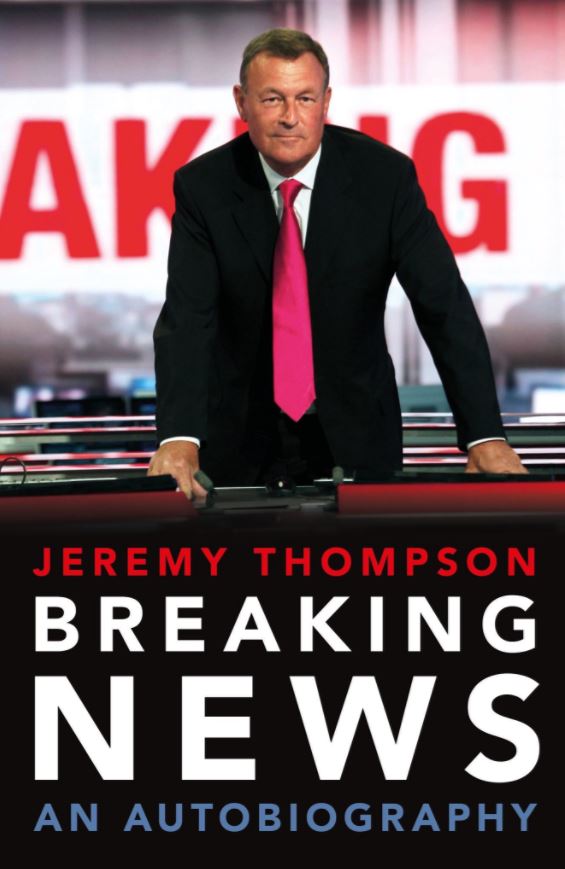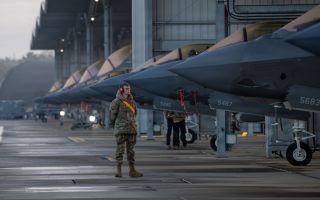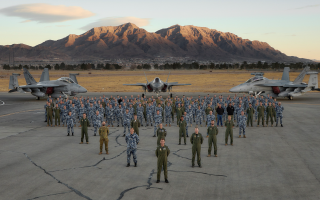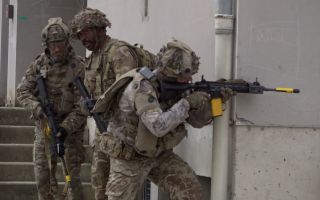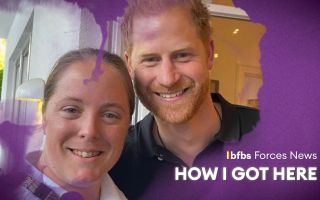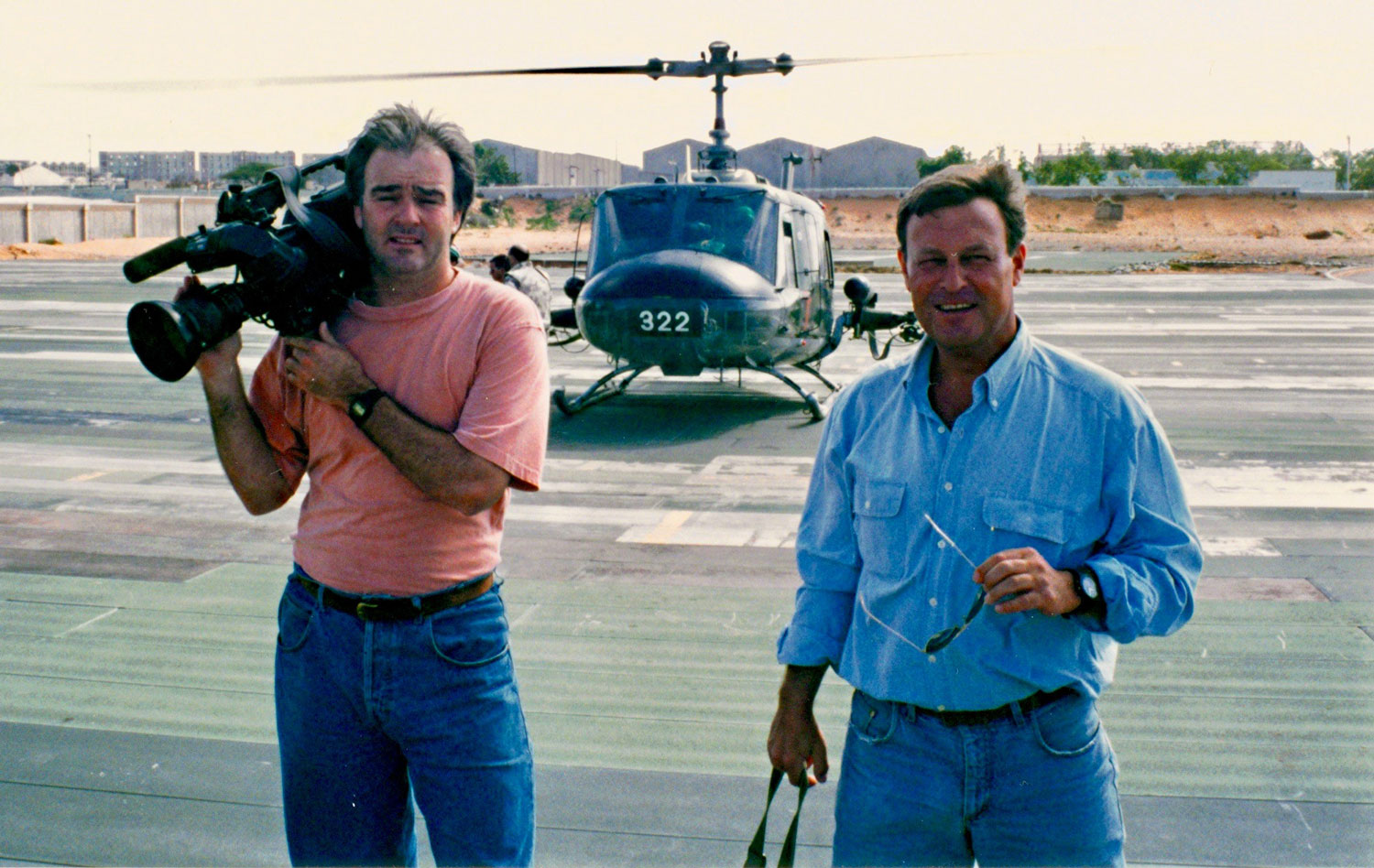
Jeremy Thompson: Why I Wanted To Take The 'Embedded' Out Of War Reporting

Jeremy Thompson is a former Sky News presenter who became known for broadcasting on location - including in conflicts in Kosovo, Iraq and Somalia. He's given Forces Network some insights from his new book 'Breaking News'...
I don't mind admitting it, I was always a bit of a maverick.
As a journalist, I liked doing things my way. I treasured my independence.
I prized my freedom to stick my nose in where it wasn't always welcomed. Frankly, I enjoyed being a right pain in the butt.
But then a good hack should be if he or she is doing their job properly.
Not surprisingly the idea of being part of a pool, attached to a military unit or 'embedded', as it became known in the 2003 invasion of Iraq, wasn't my idea of fun.
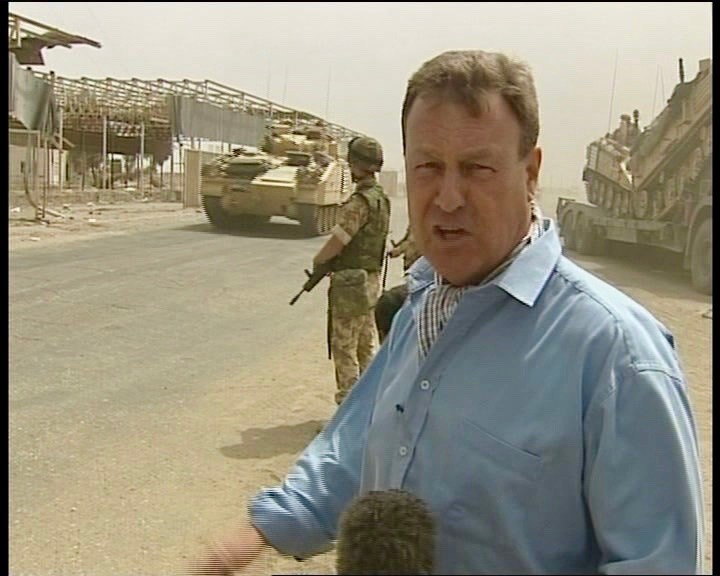
So, as Shakespeare might have put it: to embed or not to embed, that is the question.
It was nothing new. It had been going on since the Crimean War 150 years back, attaching news reporters to the military so they could get closer to the action, but with some protection.
Many of my news comrades liked the whole idea. The MoD certainly did.
As one general neatly put it, they could 'dominate the information environment' by controlling the message and the messengers.
I thought it was an uncomfortable compromise. Journalists can end up being far too reliant on the military for transport, fuel, food, water, security, access and, above all, information. It can all get a bit cosy. Reporters seeing battle through khaki-tinted glasses.
Through many years of war reporting around the world, I'd seen attitudes change towards journalists on the frontline.
Under the relentless 24-hour news cycle and with the onset of social media, the old respect for independent observers had worn thin.
In the Yugoslav conflict we were increasingly accused of being partial, of taking sides. At times we were seen as combatants and targeted by rival militias.
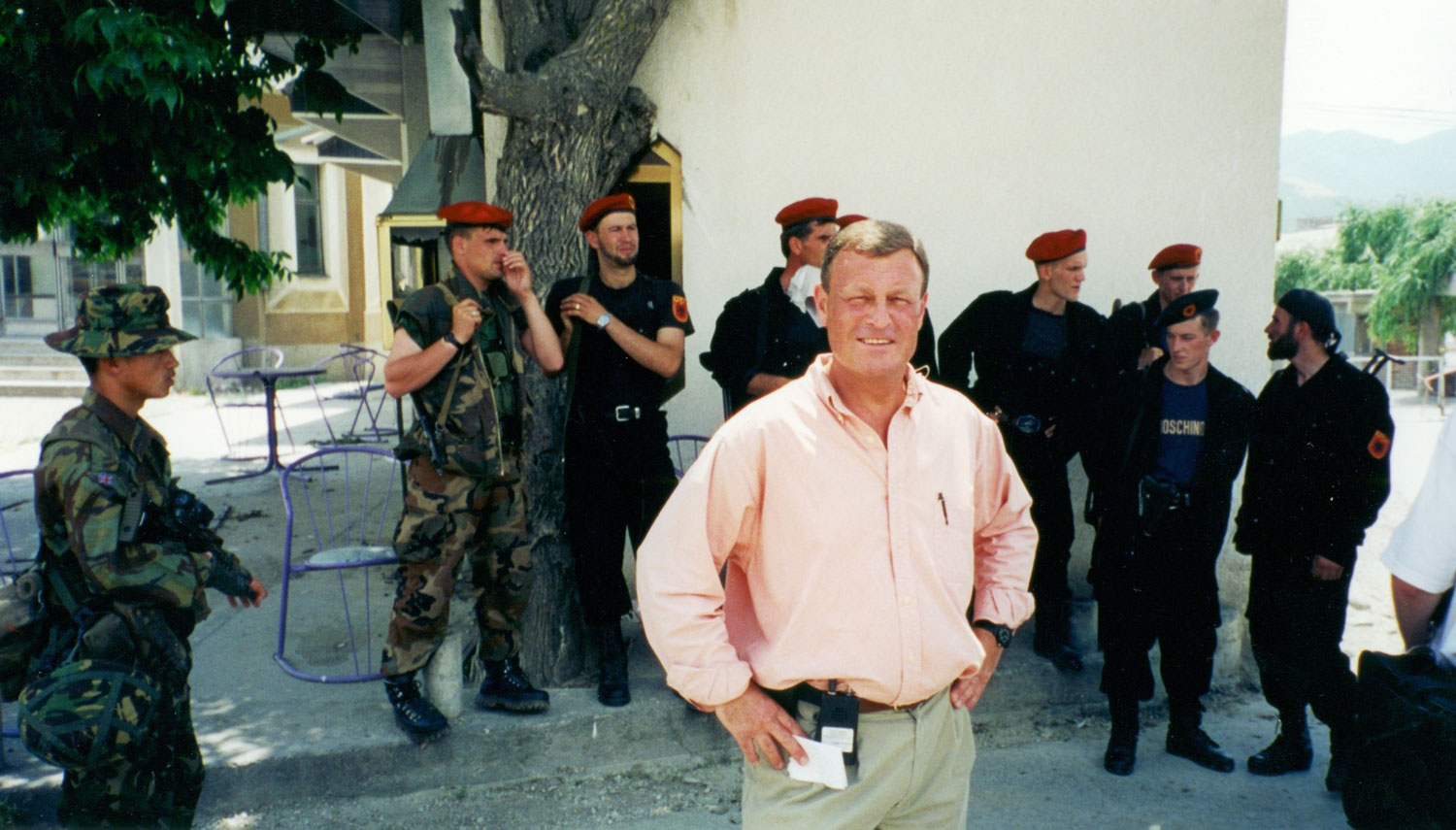
But come 2003 and my second Iraq War, I still fancied taking my chances as a unilateral. And so it was, on 22nd March - my younger son's wedding day as it happened - I and my Sky News team barrelled through a gap in the frontier fence with a battered old satellite truck and two 4x4s and entered Iraq.
It was to be a historic and traumatic day. We were shot at, mobbed by bemused Iraqi citizens, we filmed British forces streaming past and I interviewed the Defence Secretary Geoff Hoon by satellite as I stood in the desert sand.
"Then came the awful news that my old ITN buddy Terry Lloyd and his team had been killed in crossfire a few miles to the east of us. His death changed our unilateral thinking and our mood."
Just up the road towards Basra we saw the comforting sight of the Desert Rats, the 7th Armoured Brigade, setting up camp. They agreed we could take shelter
nearby.
Not embedded, but in touch and more secure. Reporting war was always about minimising risks. We certainly felt safer within sight of British squaddies.
We returned the favour by getting the men and women in uniform on TV to send messages home. And our Sky links engineers rigged up a receiver dish
so the lads could watch England play Ireland in the Five Nations rugby.
It paid off handsomely when our new military mates tipped us off that the MoD was after me and my team.
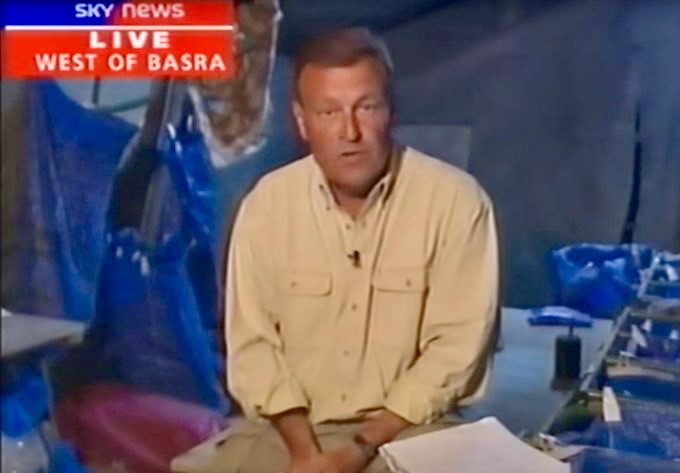
The MOD had set up a much-vaunted Forward Transmission Unit, known as the 'Hub', a new super-embed for reporters, who were promised unrivalled
access to the frontline.
The reality was that while I was reporting freely from inside Iraq, the Hub was still stuck in the sands of Kuwait and its frustrated hacks were giving their
minders hell.
The embeds were describing us as 'embed sores' or 'blisters'. And I got word that the Hub's military spokesman had become 'almost obsessive about Jeremy Thompson’s roaming maverick operation' and that High Command was 'determined to remove Thompson from Iraq and repatriate him to Kuwait'.
'You and who's army?' I thought, as me and my Sky team legged it into the desert for a day to avoid detection.
We even dug up a great story as we chanced upon the Black Watch paying their respects at a memorial where regimental comrades had died in 1914 on a previous British Expeditionary Force mission into Iraq.
As one MoD media officer told me weeks later: 'You really buggered up the embed system, but hats off to you. You got some great material and I admit
we watched Sky all the time.'
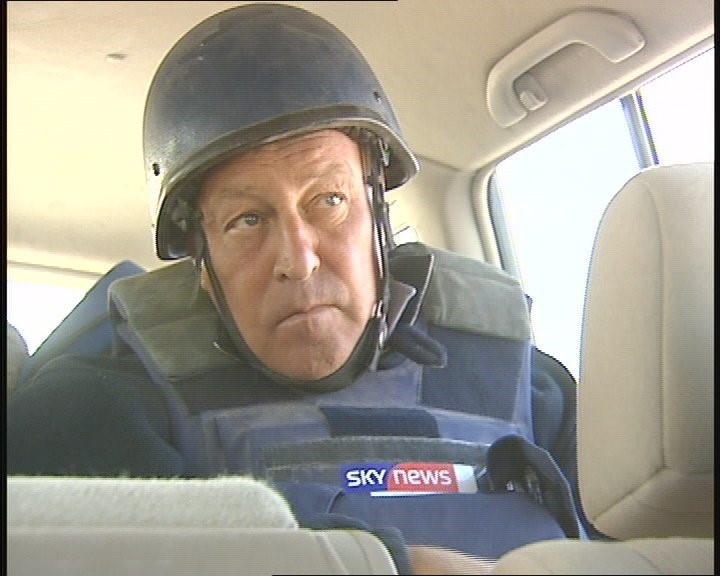
In the end it all worked out pretty well. My Sky News team pressed on to Baghdad in time to see Saddam's statue pulled down. And the Hub hacks saw some action around Basra.
Looking back on it, I think the mix was good for our viewers. The embed teams produced some excellent stories, while we mavericks added colour
and perspective from different angles on the frontline.
The result was live TV war coverage as never seen before, courageous and high-quality reporting.
And whether we were official or unofficial, we couldn't have done it without the help of the great women and men of the British forces.
**More on Jeremy Thompson's experiences as a TV reporter in war and peace can be found in his new autobiography 'Breaking News', available from bookshops and Biteback Publishing.
